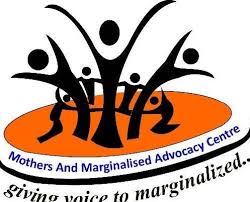A non-governmental organisation, Mothers and Marginalised Advocacy Centre (MAMA), has called for the strict enforcement of laws against the exploitation of Nigerian children.
It lamented that Nigeria has remained a source, transit, and destination country for child trafficking despite the efforts to curb the evil enterprise.
While canvassing for actions that would give every girl-child a sense of safety and a guaranteed future, MAMA Centre said the strict enforcement of such laws would protect women and girls and the vulnerable from abuse and exploitation.
Founded and led by survivors, women and girls who survived modern slavery/domestic servitude and sexual assault, the centre decried the often-overlooked needs of Nigerian girls and vulnerable groups.
In a statement to mark the 2025 International Children’s Day yesterday, the executive director of MAMA Centre, Ms Chioma Kanu, said, ‘’Women and girls are disproportionately affected by domestic servitude and are frequently trafficked internally from rural to urban areas for sexual exploitation and into ‘baby factories’.
“Nigerian women and girls constitute a high number of victims trafficked to Europe, particularly Italy, for sexual exploitation.
In 2021, of the 841 sex trafficking victims identified by the National Agency for the Prohibition of Trafficking in Persons (NAPTIP), 763 were women, while 67 of them were girls,’’ Kanu said.
She called on the Nigerian government, international organisations, civil society groups, and the public to unite in prioritising the needs of children, especially girls.
“Drawing from live experiences, we urge increased awareness, targeted interventions, and stronger protective measures to safeguard this vulnerable population,” Kanu said.
Explaining the worrisome slavery index, which revealed the plight of victims across the globe, MAMA urged concerted action to stop the development.
‘’Globally, women and girls make up the majority of victims of modern slavery. They represent an estimated 99 percent of victims in the commercial sex industry. The 2023 Global Slavery Index estimates that on any given day in 2021, there were 1.6 million people living in modern slavery in Nigeria. This represents 7.8 people for every thousand people in the country. Nigeria ranks 5th highest in Africa and 38th globally in terms of the prevalence of modern slavery,’’ she stated.
The organisation lamented the negative effects of modern slavery on girls who are trafficked to Europe for sexual exploitation and other forms of domestic servitude and sexual assault in the country.
‘’An estimated 30 percent of women aged 20-24 in Nigeria were first married or in a union before the age of 18, highlighting the issues of forced marriage as a form of modern slavery affecting girls.’’
It also stressed the intolerable vulnerability of girls and women in conflict settings. Citing the experience in North East Nigeria, where the girl-child and some boys were abused and violently exploited, MMA Centre said the International Children’s Day should be a time to reflect on the plight of all vulnerable children and bring hope to them.
“Studies indicate that children form the largest group of victims of trafficking in Nigeria, both internally and externally. In 2020, NAPTIP reported four cases of children exploited in the commercial sex industry, with another five cases in the first half of 2021. In the context of the conflict in North East Nigeria, between 2017 and 2019, the UN verified that 204 children (195 girls and nine boys) were affected by sexual violence, including exploitation, slavery, and forced marriage, attributed to Boko Haram and Nigerian security forces.
According to reports, Boko Haram has kidnapped over 1,000 children in Nigeria since 2013, with girls often forced into sexual slavery and “marriage” with fighters.
Girls and children in Nigeria are subjected to various forms of modern slavery, including forced labour, a situation where children are in domestic service, often as “house girls”, facing abuse. There is also exploitation of young girls to produce children for sale, also known as “Baby Factories.”
It bemoaned that the above-mentioned issues are deeply intertwined with modern slavery. “We understand the insidious ways in which vulnerability can be exploited,” said Kanu. “International Children’s Day should be a time of celebration and hope, but for countless girls in Nigeria, it is a stark reminder of the dangers they face daily. We cannot stand idly by while their futures are stolen.”
‘’We advocate for increased investment in girls’ education, scholarships for marginalised communities, and programs that promote financial independence for women,’ Kanu said.





